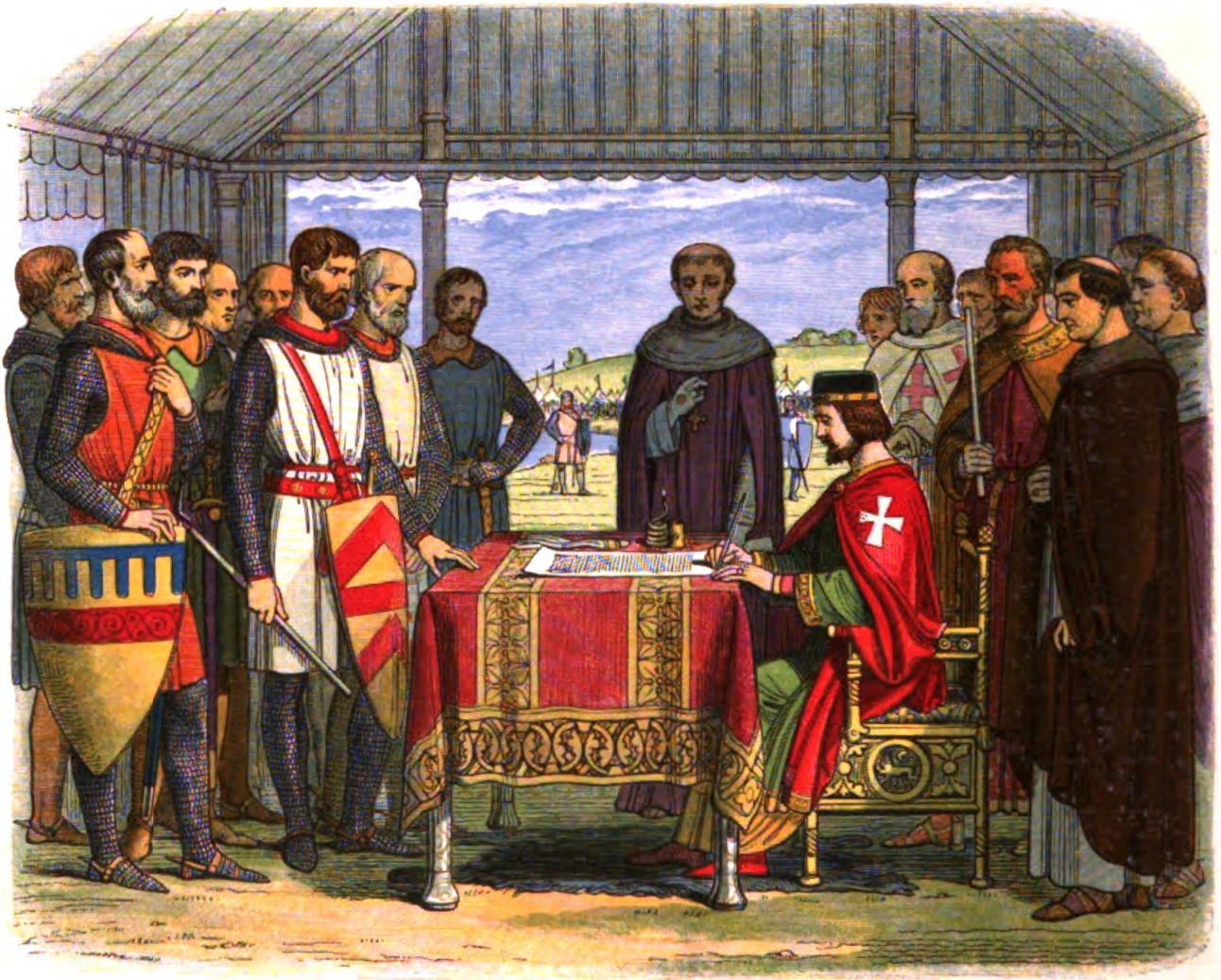Magna Carta, Due Process, and the Prohibition against Arbitrary Imprisonment or Killing
Eight hundred years ago today, English barons obliged King John to sign Magna Carta. In honor of the anniversary, I thought I might share a brief passage on the subject from my book manuscript (I'm in the midst of a long-running book project, the aim of which is to situate various post-9/11 controversies in long-term historical context). From the current draft of my third chapter:

Published by The Lawfare Institute
in Cooperation With

Eight hundred years ago today, English barons obliged King John to sign Magna Carta. In honor of the anniversary, I thought I might share a brief passage on the subject from my book manuscript (I'm in the midst of a long-running book project, the aim of which is to situate various post-9/11 controversies in long-term historical context). From the current draft of my third chapter:
The idea that the state’s capacity to kill or imprison should not be exercised at the ruler’s whim was not wholly new when it became the focus of controversy in 17th century England. As supporters of the principle were quick to note at the time, it had roots tracing back at least to the year 1215, when an armed confrontation between a weak English king and a coalition of nobles was resolved, temporarily, by the king’s agreement to a charter listing an array of limits on royal authority. That document, which came to be known as Magna Carta, was not itself a pure novelty; through coronation oaths and other instruments, earlier English kings had voluntarily embraced the general idea that they would exercise authority in accordance with the customs of the land. But Magna Carta more clearly insisted that kings were subject to law, and among other things it offered an explicit constraint on the powers to kill and detain: neither force nor detention would be used against a “free man” except in accordance with a “lawful judgment of his equals or by the law of the land."
As a practical matter, Magna Carta was short-lived (the pope excused the king from compliance on the ground that he had been coerced into signing), and the “law of the land” clause in any event left open the possibility of kings claiming that some degree of royal discretion in the use of coercive power was, by custom, part of the legal landscape and thus permissible. But as Lord Bingham recently observed, Magna Carta nonetheless became “a rallying point for centuries to come,” more important for what “later generations claimed and believed it said.” And many in those later generations claimed and believed that Magna Carta forbade discretionary coercion.
Centuries would pass before the issue came to a head. It became more significant as the size and coercive capacity of the central government grew under the Tudor monarchs in the 16th century, however, and it became an acute concern with the transition to the Stuarts in the 17th.



.jpg?sfvrsn=8588c21_5)
-final.png?sfvrsn=b70826ae_3)
